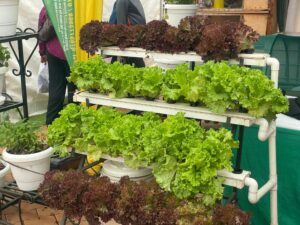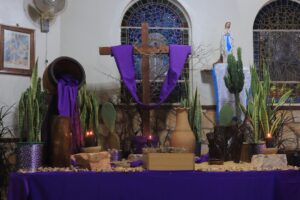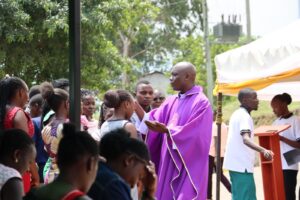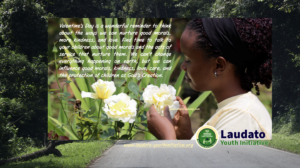By Avuni Alfred – Director, John Paul II Justice and Peace Centre (JPIIJPC)
I have learned that ecological sensitivity is not just an environmental issue but also a critical matter of justice and peace. The fact that we have been working at the elimination of social injustices reveals that, indeed, our activities should also involve a strong commitment towards environmental stewardship. This unity of the confrontation of ecological care and the need for social justice is vital if we are to develop a sustainable future and if we are to fulfil the responsibility that we share of preserving our planet.

Laudato Youth ensuring proper disposal of waste at Rwaihamba market area
The joint project with Laudato Youth Initiative, the Nature Walk for Environmental Awareness took place on June 8, 2024, providing a good example. The event involved Nyakasura School, Divine Mercy SSS, Mountains of the Moon University, and Fort Portal Diocese, and through this event, the students were able to get involved and learn about the local ecosystem and everything it entails. We enabled participants to better understand the causes of climate change and other environmental issues through activities like the guided tours of the ecosystem, the one-on-one sections with experts on the issue and talking about sustainability in groups. It was very gratifying to see many young people who got involved in community conservation projects and they also emphasized the necessity of education in driving societal change.

Yet another major project, Solar for Peace, is the latest evidence of our commitment to sustainable development. In late 2023 we embarked on Solar for Peace, a solar project to set up computer laboratory at Twajiji Hope Primary School in the Bidibidi Refugee Settlement. The lab includes 20 computers, high-speed internet, and it is run with 5.5 KW of solar energy, allowing refugee and host community students to have access to digital learning tools. Access to this computer lab not only boosts learners’ academic capabilities, but it also provides a great model for energy diversification in educational systems and our dedication to sustainability.
Our activities in the environment are not the only ones that are between one and the other social justice areas; however, we are also engaged in the fight against human trafficking and modern slavery. Our National Prayer Day on Trafficking in Persons (TIP) and Modern Slavery (MS), which is penciled in for September 13, 2024, is expected to be dedicated to the topic “Leave No Child Behind in the Fight Against Trafficking.” The focus of this love will be the victims of smuggling who are children and the call to stop this criminal act is clearly stated. It is a reflection of our broader commitment to human rights defense through advocacy, prayer, and community engagement.

In a similar manner, our participation in World Refugee Day on June 20, 2024, at Bidibidi Settlement was corresponded with the theme “In Solidarity with Refugees” which showed our dedication to social justice. The occasion revealed the need for people to be more supportive of refugees and resolve the adversities they face. It is what exhibited our role in providing global solidarity and local integration, thus it is our goal to help them out and further the cause of peace through our continued advocacy and support.

My belief is that ecological awareness has a direct connection to social justice. Our past initiatives are the like of Laudato Nature Walk and Solar for Peace Project, are concrete examples of such practices that can stir up positive change. By dealing with both these private needs and the long-term targets, we are not only transforming the existence of transient groups, but also helping to promote a healthier and more just future.
At JPIIJPC, our approach to justice and peace reflects this comprehensive perspective, where environmental stewardship is seamlessly integrated with efforts to combat human trafficking, support refugees, and promote civic engagement. Through our ongoing collaboration with the Laudato Youth Initiative and other partners, we strive to build a just and sustainable world for all.









